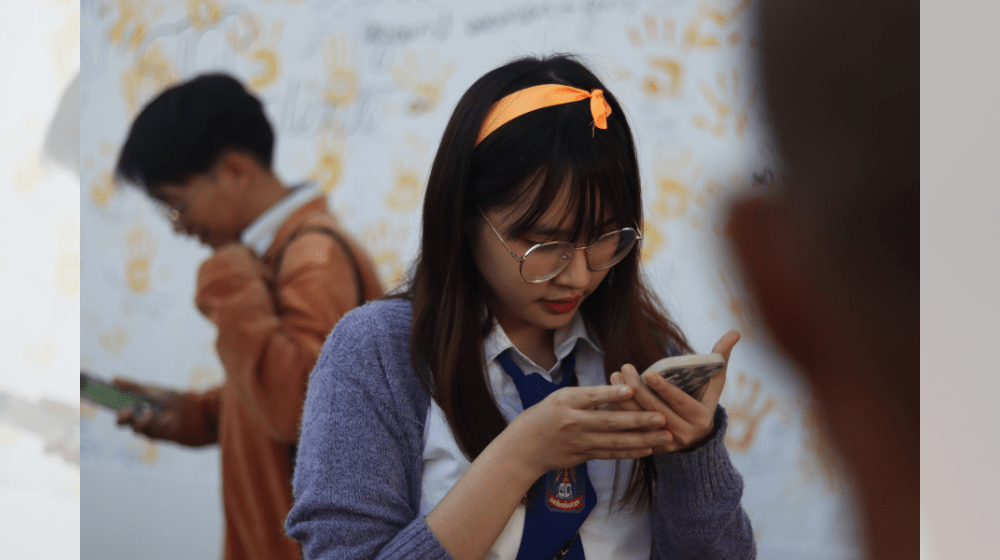United in our Efforts to Accelerate Towards Gender Equality!
The theme for the International Women’s Day this year (IWD 2023) is the impact of virtual and technological progress in all spheres of life: “DigitALL: Innovation and technology for gender equality”.
We are delighted to be united in our collective efforts to accelerate the achievement of gender equality!
Coming out of a few years of COVID-19 impact, when too many of us spent too much time in the virtual world, it is essential to consider how digitalisation and innovation can be a source for gender equality and equity, for promoting rights and choices! The washing machine, the microwave oven, the contraceptive pill were all revolutionary in their time. They improved the lives of generations of women before us, leaving them more time for themselves and giving them control over their own bodies. What new technological breakthroughs will be game changers for a more gender equal world for the next generation of women and girls?
We can share some of the results and impacts we would like to see from an increasingly digitalised world with innovative technology. So here are some of our thoughts to innovators and disruptors of conventions. We would like to see access to online information and opportunities equalised; we would like to see safety for women, girls and vulnerable groups in online spaces; we would like to see accountability of those in power to make these spaces equal and safe for women and girls, irrespective of their sexual orientation. Sexual orientation and gender identity are integral aspects of ourselves and should never lead to discrimination or abuse.
The Lao PDR consistently supports progressive international conversations and consensus around women’s rights, many of which are reflected in national laws and policies. Innovations such as the ‘Noi Framework’ in Laos highlight the demographic case for investments in the adolescent girl, receiving widespread Government support. During and after the COVID-19 pandemic, telehealth for maternal health was initiated and will now be mainstreamed, and remote counselling for mental health and psychosocial well-being of individuals was increased. Education curricula were improved, including Comprehensive Sexuality Education access through online videos, and the Noi Yakhoo Application was launched. . These are all relevant and important initiatives, aimed also at reducing the digital divide in Laos, as a pre-condition to make technology accessible to all.
Aligned with this year’s IWD theme, here are four areas we think require urgent attention in Laos:
Literacy and education: COVID-19 increased school dropout rates. Today, proactive enrolment and retention in schools of girls and boys need to be ensured. Providing teachers and students with better digital skills and access to technologies can help keep girls in school, especially amongst the poorest, while diverse learning opportunities in person and online, such as Khang Panya, should be accessible to those who have dropped out.
Health and Mental health: To protect maternal health, increase, in particular national budgets for contraceptives and maternal health. Women who can choose if, when and how many children to have, will access more opportunities for themselves and their children. Family planning gives the highest return on investment within the Reproductive, Maternal, Newborn, Child and Adolescent Health (RMNCAH) and Nutrition, and can also reduce stunting in children under 5 by over 5.4%[1]. Expanding services such as telehealth can ensure uninterrupted access to reproductive health information, services and care for women and girls. While remote counselling and de-stigmatising access to mental health for all, women and girls as well as men and boys can improve women’s safety and security.
Finance and economic empowerment: Less than one-third of women have bank accounts with a financial institution[2]. Only 2.2% of women-led businesses use information communication technology to sell their products compared to 3.3% of men-led businesses[3]. In a survey on access to trade finance, 70% of businesswomen reported that their credit applications were totally or partially rejected[4]. E-business and e-banking have great potential for expanding women’s access to finance and business, but technology must be combined with effective financial, digital, and entrepreneurship literacy and accessibility.
Safety in person and online: Data shows that just like in real life, women and girls are targeted far more online. This is known as technology facilitated gender-based violence (TFGBV). This has severe impacts on their mental well-being as well as safety and security. Raise awareness of protection laws that exist and increase online protection mechanisms, for example, by promoting public campaigns such as #bodyright, which rolled out in 2022 in Laos.
So please, as you celebrate yourself or the women and girls in your lives, take a moment to consider their rights and their choices. It’s a day to consider whether technology and innovation around you are inclusive of the rights of women and girls, [of vulnerable groups, of LGBTIQ+], if it keeps them safe and ideally expands their opportunities!
Happy International Women’s Day from us to you! We are convinced that if we work together, build on each other’s efforts, next year we can celebrate accelerated progress in Laos for use of technology and innovation to protect the rights and choices of women and girls!
Mariam Khan is the UNFPA Representative based in the Lao PDR.
Ina Marciulionyte is the EU Ambassador to the Lao PDR.
Sonomi Tanaka is the ADB Country Director in the Lao PDR.
Mental health and psychosocial support (MHPSS) Helplines numbers


